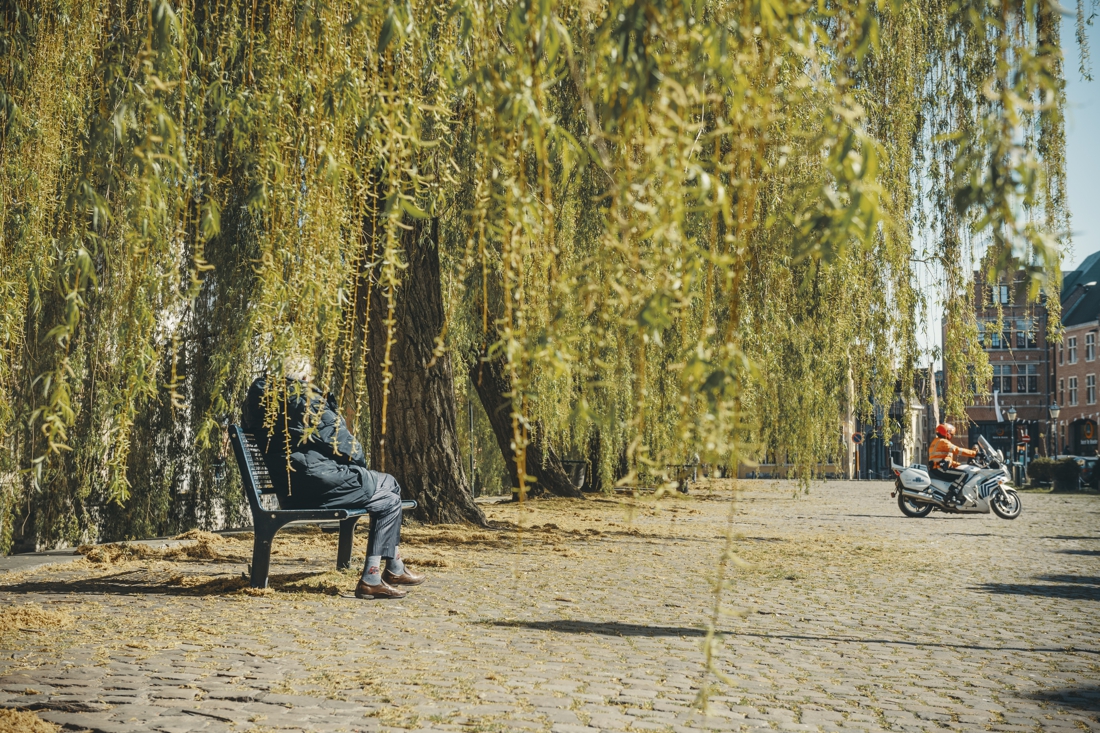Italian pharmacists are facing a huge increase in demand for a niche product generally marketed as an immune system booster for babies, weeks after a viral video suggested it could protect against the coronavirus.
Lactoferrin, a protein found in high concentrations in breast milk, was subjected to a small clinical trial in Rome and experts have reported positive results, but said more research is needed.
There was no confirmation that the drug is effective against the new coronavirus, but pharmacies in central Rome have told AFP that they are dealing with a dramatic increase in demand in a country with one of the highest death rates in Europe.
“We don’t know anything about this product, we are also in the dark on this,” a pharmacist told AFP on condition of anonymity, confirming that demand was increasing. “When people are scared, they believe in anything.”
The purchase of lactoferrin followed a local report in July in which Elena Campione, professor of dermatology at Tor Vergata University in Rome, made strong statements about her investigation.
“We decided to treat patients with covid-19, in the initial stage of the disease. It was incredible, but 10 days after starting therapy, the symptoms disappeared and the PCR test (for coronavirus) was negative,” he said.
The report went viral on social media, with banners added by a user saying things like: “how are you going to convince us now that we all need to be vaccinated?”
The video “died” after initial popularity, but has now resurfaced when covid-19 cases began to rise, topping 25,000 a day in late October.
“No clinical evidence”
Although the substance is mostly sold as a baby supplement, it is also marketed by a company like “CovAlt” and sold in a product line that includes hand gel and other items associated with the virus.
The impact on social media helps sales of these types of products, but some experts are not impressed.
“I am receiving a lot of requests about this, and I collectively respond to all,” Roberto Burioni, professor of virology in Milan who runs a website called Medical Facts, wrote on Twitter: of covid-19. “
There is no clinical evidence of the utility of lactoferrin in preventing or treating COVID-19. Those who argue otherwise, instead of insulting me, should point to the bibliographic references that demonstrate this usefulness. But they are not there and cannot. So shut up. Amen pic.twitter.com/FfLscpc9Vi
–Roberto Burioni (@RobertoBurioni) October 30, 2020
Spanish health authorities agree with this assessment. Recently, they asked a doctor to stop making similar claims about lactoferrin products and acted disciplinarily for carrying out unauthorized studies.
Doctor Gabriel Serrano is now facing sanctions from the Valencian regional health authority for his activities.
However, the positive coverage of lactoferrin continued largely in Italy, with an uncritical article in the Repubblica newspaper on Thursday, proclaiming in its headline: “Lactoferrin protects against the virus”.
The newspaper published another article on Friday with the news that scientific research was inconclusive.
“Like a psychosis”
Meanwhile, a large pharmacy in central Rome told AFP that they are now selling up to 100 boxes of the supplement a week, compared to just two or three in a month in normal times.
“I don’t ask if people are buying for covid. The flu season is coming, maybe some people are buying for it,” said an official at the Igea San Gallicano pharmacy in Rome. “But if someone comes and buys in bulk, you know they are buying because of covid,” he added.
Another pharmacist, in front of boxes of “CovAlt” and other pills, told AFP that his small family sales outlet saw an increase in demand. There were even some people who had prescriptions from their doctors.
“They used to come and ask for advice on what they could do to perhaps boost their immune system against covid. Now they come and ask for these lactoferrin products by name,” he said.
The drugmaker said it saw the product fly off drugstore shelves, describing the demand for unproven products as “like a psychosis”.
AFP contacted Laboratorio della Farmacia, which makes the CovAlt line, and the Ministry of Health, but received no response.
– .


